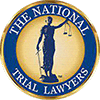Are you interested in becoming a lawyer and wondering about the use of the title Esquire? Before you can add that prestigious title to your name, you must first acquire the right to practice law in a given state. This involves passing the LSAT, attending law school, and passing the Bar exam. As a legal entity, you are entitled to use the title Esquire, but not until you have met these requirements. If you’re thinking about pursuing a legal career, read on to learn more about the process of becoming a lawyer and how to apply to law school. As you begin your journey, you’ll also become familiar with admissions officers and what they’re looking for in potential law students.
The term Esquire, often abbreviated Esq., often appears at the end of an attorney’s name. You may have seen it on your attorney’s letterhead or the attorney’s signature, both on formal letters and emails. But what does Esquire mean? In this article, we will discuss the meaning of Esquire in legal terms and how personal injury attorneys, getting into law school, and administrative law all relate to the use of the term.
Definition
Esquire is a title used to indicate that an individual has the right to practice law in a given state. This title can be used by any lawyer, regardless of their area of specialization, such as family law, personal injury law, or corporate law. However, it is important to note that lawyers are not entitled to use the term Esquire until they have graduated from law school and passed the Bar exam.
The term Esquire originated in Great Britain and France during the Middle Ages as a term of nobility. It referred to the squire of a knight who hoped to acquire a noble rank as they rose to knighthood themselves. However, the Constitution of the United States prohibits noble titles, so Esquire is used solely as a title indicating the right to practice law.
Acquiring the Right to Use the Title, Esquire
To use the title, Esquire, an individual must go through several steps to acquire a legal education and receive the right to practice law in a given area.
Step One: Passing the LSAT
The Law School Admission Test (LSAT) is a rigorous, half-day exam that tests the student’s analytical reasoning, logical reasoning, and writing skills. It has scores ranging from 120 to 180, and top candidates who want to attend the most prestigious law schools in the country aim to score 165 or above.
Step Two: Law School
Most law schools require three years of intensive study. Before attending law school, potential lawyers must already have a bachelor’s degree, though it can be in any field. However, a degree in a field that helps prepare students for a deeper understanding of the law can make it easier for students to excel in law school.
Step Three: Passing the Bar
After graduating from law school, individuals must pass the state Bar exam. This exam assesses whether a particular candidate has the necessary knowledge to practice law within a specific state. Once a student passes the bar exam, and the bar confers upon them the right to practice law in the state, they can add the title Esquire to their communications.
What the Esq. Title Means
The title Esquire simply means that someone has the right to practice law within a state. It does not automatically mean that the individual can offer comprehensive advice about specific areas of the law. Once a lawyer graduates from law school and passes the Bar, they will often move on to a law firm specializing in a specific law area. They will gradually deepen their understanding of those specific elements of the law. However, they may have much less in-depth knowledge of other areas of the law.
Can Lawyers Use the Term Esquire After Retirement?
Many attorneys choose to keep the honorific “Esq.” as part of their titles even after retirement. It serves as a reminder of their past commitments and practices, indicating the effort they put into their studies and careers and the support of the clients who came through their firm over the years.
However, retired lawyers should not use “Esq.” to drum up business in another state as part of unauthorized practice, nor should they use it to represent themselves as currently practicing lawyers. In fact, some state Bar associations prohibit the use of the title by retired attorneys in certain circumstances, so it’s essential to check the regulations of the state where the attorney practices.
Other Legal Abbreviations You Might Need to Know
While researching the legal options and law firms available to you, you may notice that many lawyers use abbreviations. Understanding the definitions of these titles can help you get a better idea of the scope of these attorneys’ practices.
LL.M. (Legum or Legum Magister) refers to an attorney who has earned a Master of Law degree through advanced legal study in a particular area. This degree indicates that the attorney has specialized expertise in that area and may be beneficial when dealing with complicated legal issues, such as those involving corporate law.
J.D. (Juris Doctor) indicates that an attorney has graduated from law school with a graduate-level degree, which is necessary to practice law within the United States.
LL.B. (Legum Baccalaureus) is a title used outside the United States in most common law jurisdictions that meet the same requirements as a J.D. Lawyers who obtained their degree outside the United States or who practice law in another country may use this designation to indicate the successful completion of their schoolwork.
J.S.D. (Juridicae Scientiae Doctor) designates an attorney who has earned a Doctor of Science of Law degree equivalent to a Ph.D. in law. This degree often indicates that the attorney plans to become a legal professor or has exceptional knowledge and understanding in their field.
JP typically stands for “Justice of the Peace.” However, the term “Justice of the Peace” is not typically used in the United States federal court system. Instead, the term “Magistrate Judge” is used to refer to a judicial officer who assists district court judges with various aspects of their caseload. These duties might include conducting pretrial proceedings, issuing search and arrest warrants, and hearing certain types of civil cases. In some state court systems, the term “Justice of the Peace” may be used to refer to a judicial officer who presides over small claims court or performs other judicial duties, depending on the jurisdiction.
P.A. (professional association) usually appears after the name of a law firm and stands for a professional association. It indicates that the lawyer has created a separate entity to operate the law firm, reducing the personal liability associated with the firm.
In conclusion, Esquire, or “Esq.” is a title that indicates someone has the right to practice law within a particular state. Although it originated in Great Britain and France as a term of nobility, it now refers to lawyers in the United States who have graduated from law school and passed the Bar exam. While it is primarily used in written legal communication, it can be used in verbal communication to establish a person’s profession.
Call the Law Office of Teresa P. Williams today to speak with an experienced attorney about your legal needs. With our expertise in personal injury and more, our team is ready to help you navigate the legal system. Contact us at (727) 796-2706 to schedule a free consultation, or email us at [email protected]. Let us be your advocate and fight for the justice you deserve.








